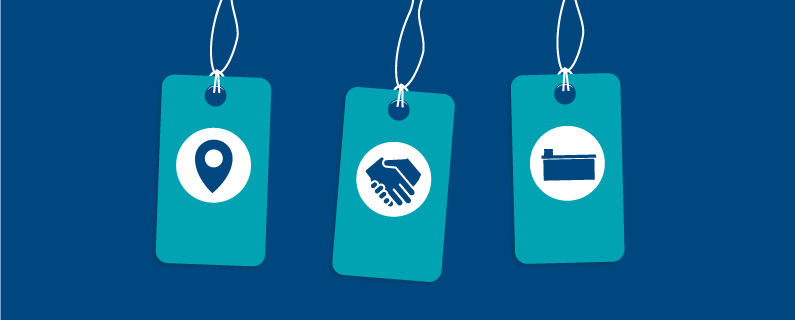
Like a lot of my fellow college students in the 21st century, I had to work retail for a few years to make ends meet while juggling being a full-time student. Specifically, I worked in an independent electronics store specializing in retro games and entertainment. Like many small businesses focused on retail, digital marketing wasn’t exactly a top priority for the business owner. It was my fellow coworkers and I who urged the business owner to engage more with digital marketing, perhaps because we understood the target customer better, being closer to that target demographic in age and hobbies.
The business owner made the call to let us run social media, the business website and more. Not only did we find some success in doing so, but I personally learned a great deal about small business retail marketing – some lessons which translated to what I do now with small businesses at Roundpeg. Here are just a few simple lessons we learned along the way, and how we put those lessons into action.
Know your community
“Mom and Pop store” is a phrase that gets thrown around a lot regarding small businesses, but it was a fairly accurate descriptor of our store. When that kind of phrasing gets thrown around, it usually has to do with the connection those kind of establishments have to their community, and that connection is usually the best asset those businesses can leverage in their marketing. As a retail business owner, the relationship you have with the community, if nurtured and used correctly, can be just as if not more important to your bottom line than an attractive storefront or great prices. Know what’s important in your community, look for the untapped wells and build those relationships up.
What we did: Because all of the employees were natives or long-time residents of the town, we knew it inside and out. On our social media pages we’d frequently talk to other hobby stores, set up event collaborations with clubs from local high schools and the local university as well as addressing our messaging to specific customer feedback we’d hear on a daily basis.
Keep your base engaged
This may be easier said than done, depending on what you’re in the business of selling, and your strategy will likely vary depending on your market. Since the ultimate goal of small business retail marketing is to get people walking through your door, one of your goals online will be to keep your customers thinking about you and your products. Do that by posting and promoting content that can spark that decision to walk in. For example, a locally-owned bookstore could post book reviews, reading lists from well-known people, tie in with the latest movie release based on a book – the list is endless. Don’t limit yourself to promotions, prices or new products.
What we did: Electronics, games and hobbies are uncharacteristic in that they tend to market themselves. We as a group also had the luxury of being on the crest of a huge upswing in interest in retro games. Oftentimes we’d promote game-related content from well-known sites, making us the de facto source for content we already knew our followers would react to. Since a good amount of our market was in rare and unique items, we’d often post updates of the most interesting products to enter the store, trying to stir more interest and conversations.
Make use of “counter time”
One of the biggest boons you may have in small retail marketing is the direct customer interaction during the entirety of the customer’s visit, especially during the beginning and end of their shopping experience. That time you or your employees get to chat with your customers at the sales counter can be the place where you begin or continue to make connections in the community and promote your marketing outlets, be they your website, social media pages, email list or what have you. That counter time is where you can also directly ask new customers how they heard about you, so you can get a finger on the pulse of what’s working and what’s not. Long story short, if all you’re doing at the counter is selling, you’re missing a golden opportunity.
What we did: We posted signs around the store (especially near the counters) promoting our website and Facebook page, with an additional promotion of a free gift to anyone that showed us they “liked” our page on the spot. The conversations we’d have with customers during checkout would also give us ideas for content to put on our pages, inform future events and sales we’d plan and promote online and encourage them to engage with us on our social platforms, strengthening our relationships even more.
So what are you doing to promote your store? I’ll admit that these exact strategies may not be applicable to every single small retail store out there, but there most definitely is merit in learning from these lessons. It definitely worked for us – during my time there our dedication to the project saw our Facebook engagement and follower count almost triple in a matter of just a few months, as well as a huge spike in our monthly events. If these sound like plans that you could put into action, but you aren’t sure where to start, take the time to learn a little more about social strategy with our Social Media Starter Kit.
Roundpeg is an Indianapolis content marketing firm.

